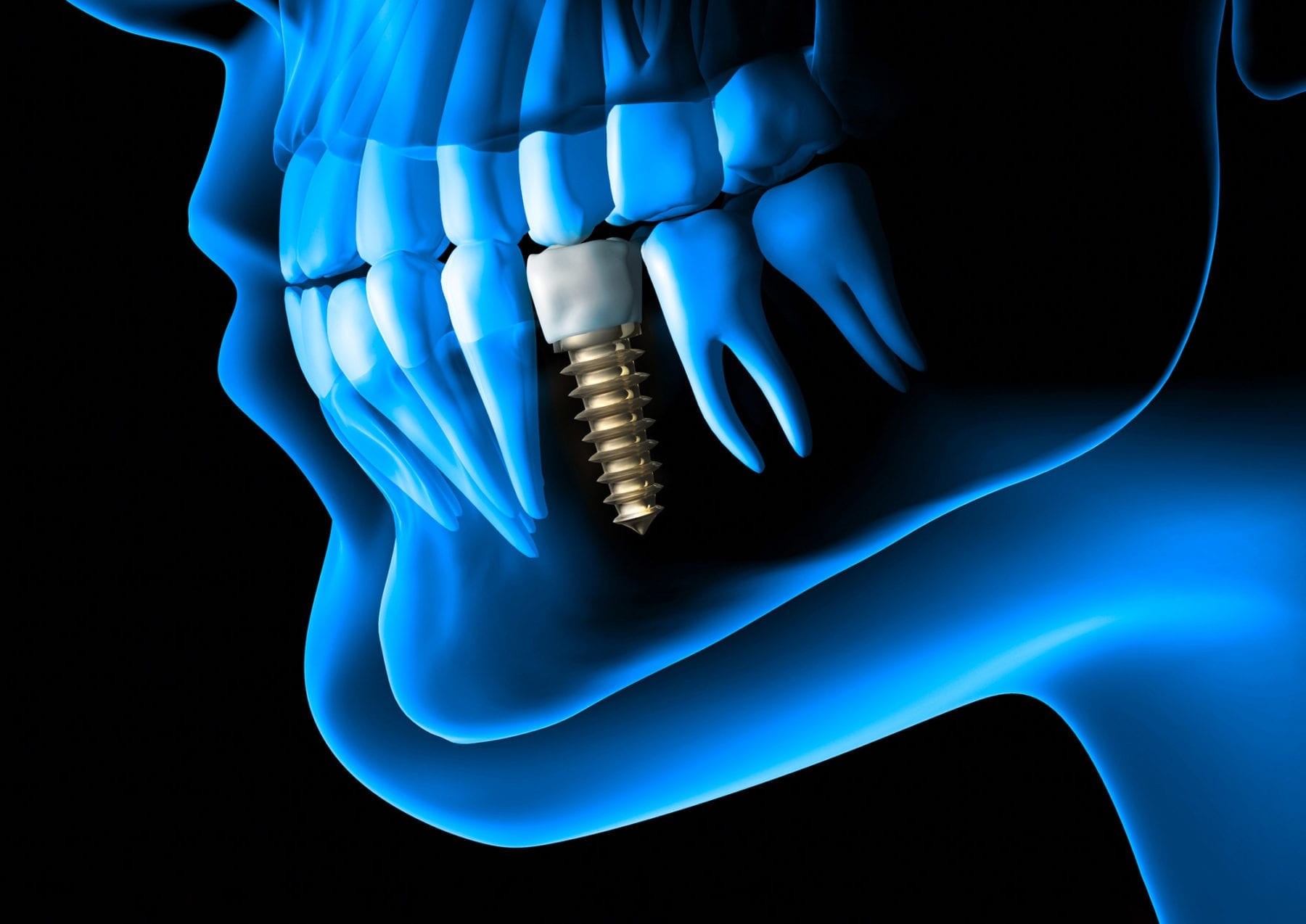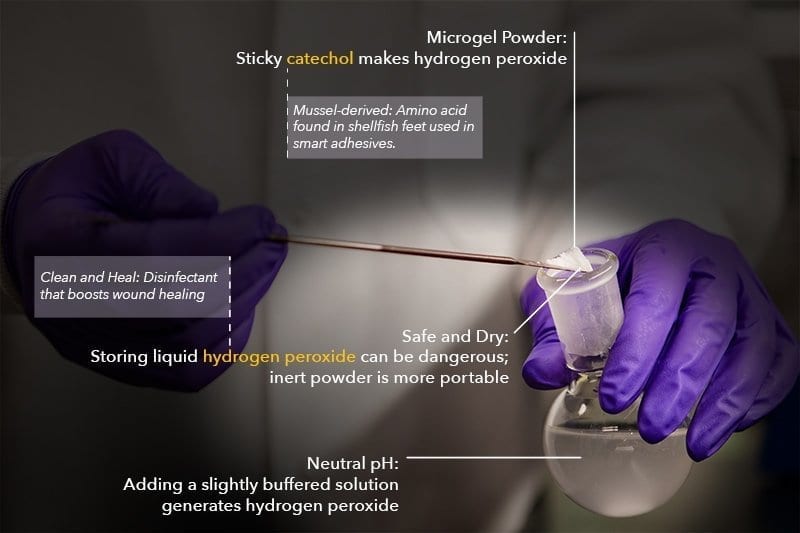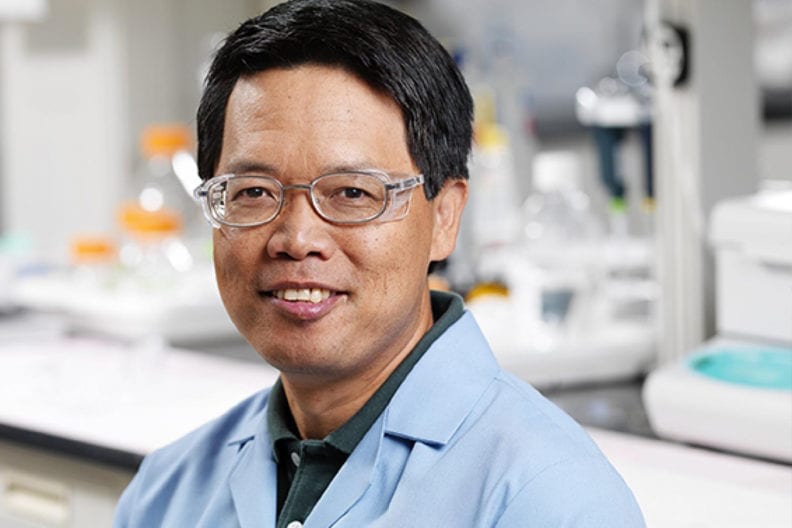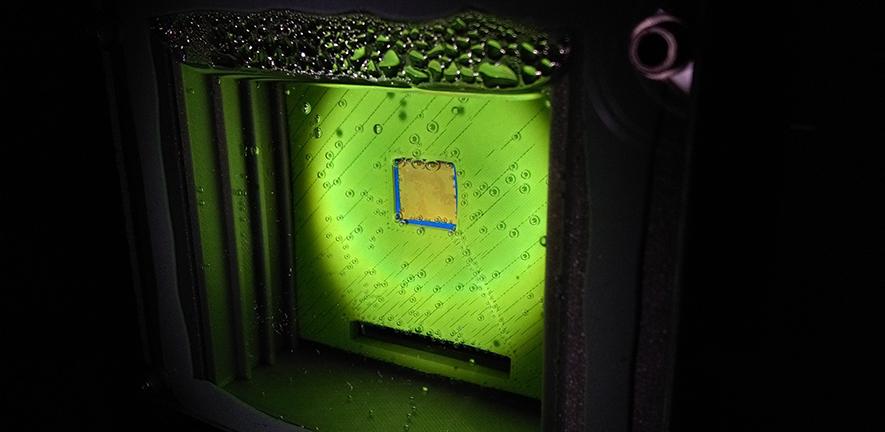
New Pitt Research Uses Electrochemical Approach to Treat Infections of Metal-Based Implants
Titanium has many properties that make it a great choice for use in implants. Its low density, high stiffness, high biomechnanical strength-to-weight ratio, and corrosion resistance have led to its use in several types of implants, from dental to joints. However, a persistent problem plagues metal-based implants: the surface is also a perfect home for microbes to accumulate, causing chronic infections and inflammation in the surrounding tissue. Consequently, five to 10 percent of dental implants fail and must be removed within 10-15 years to prevent infection in the blood and other organs.
New research from the University of Pittsburgh’s Swanson School of Engineering introduces a revolutionary treatment for these infections. The group, led by Tagbo Niepa, PhD, is utilizing electrochemical therapy (ECT) to enhance the ability of antibiotics to eradicate the microbes.
“We live in a crisis with antibiotics: most of them are failing. Because of the drug- resistance that most microbes develop, antimicrobials stop working, especially with recurring infections,” says Dr. Niepa, author on the paper and assistant professor of chemical and petroleum engineering at the Swanson School, with secondary appointments in civil and environmental engineering and bioengineering. “With this technique, the current doesn’t discriminate as it damages the microbe cell membrane. It’s more likely that antibiotics will be more effective if the cells are simultaneously challenged by the permeabilizing effects of the currents. This would allow even drug-resistant cells to become susceptible to treatment and be eradicated.”
The novel method passes a weak electrical current through the metal-based implant, damaging the attached microbe’s cell membrane but not harming the surrounding healthy tissue. This damage increases permeability, making the microbe more susceptible to antibiotics. Since most antibiotics specifically work on cells that are going to replicate, they do not work on dormant microbes, which is how infections can recur. The ECT causes electrochemical stress in all the cells to sensitize them, making them more susceptible to antibiotics.
The researchers hope this technology will change how infections are treated. Researchers focused their research on Candida albicans (C. albicans), one of the most common and harmful fungal infections associated with dental implants. But while dental implants are one exciting application for this new technology, Niepa says it has other potential applications, such as in wound dressings.
Learn more: A “Shocking” New Way to Treat Infections
The Latest on: Electrochemical therapy
[google_news title=”” keyword=”electrochemical therapy” num_posts=”10″ blurb_length=”0″ show_thumb=”left”]
via Google News
The Latest on: Electrochemical therapy
- Revolutionary chronic wound treatment could help millions, reveals studyon April 23, 2024 at 8:30 am
An effective treatment for chronic wounds that does not involve antibiotics, but an ionised gas to activate a wound dressing, has been developed by a team of international scientists.
- Best Online Therapy For Depression: Tried And Testedon April 23, 2024 at 4:40 am
Therapy can be very instrumental in treating depression, and online therapy in particular can be helpful for individuals who want to receive care from the comfort of their own home. Forbes Health ...
- New electrochemical PGMs demand on way, iridium scarcity fears eased still furtheron April 4, 2024 at 8:50 am
“Especially in the short term, we're going to see a pretty significant increase in demand for PGMs from electrochemical processes,” said Ashley. Mattiq is developing electrochemical processes ...
- New electrochemical technology could de-acidify the oceans—and even remove carbon dioxide in the processon March 29, 2024 at 5:00 pm
Clearly, this technique cannot be the sole solution. We believe an electrochemical approach operated on decarbonized energy is one of the best ways to combat ocean acidification. Using a process ...
- What Is Online Therapy?on February 20, 2024 at 6:59 am
Online therapy provides a convenient and often affordable way to access mental health help without requiring you to visit a counseling center or therapist’s office in person. Instead ...
- What Is Therapy?on April 8, 2023 at 7:31 am
Psychotherapy, also called talk therapy or usually just "therapy," is a form of treatment aimed at relieving emotional distress and mental health problems. Provided by any of a variety of trained ...
- What is red light therapy and does it work?on February 24, 2023 at 8:39 am
If you’ve stumbled into red light therapy videos on social media, you have probably heard that it clears acne, de-ages skin, reduces inflammation, and heals joints. You have probably also heard ...
- Types of Therapyon January 4, 2023 at 12:19 pm
Psychotherapy approaches are many and varied. Some types of therapy have been in use for decades, such as person-centered therapy (also known as Rogerian therapy), and others are relatively new ...
- Electrochemical Wastewater Refining: Converting Pollutants into Productson December 12, 2022 at 2:11 pm
Join William Tarpeh, Assistant Professor of Chemical Engineering at Stanford University, as he discusses recent efforts and future opportunities to design catalysts, separations methods, and ...
- Ending Therapyon July 21, 2022 at 4:06 pm
There is no “right” length of time to be in therapy. But for most people, there will come a time when therapy no longer feels necessary or progress has stalled. In most cases, the client will ...
via Bing News










